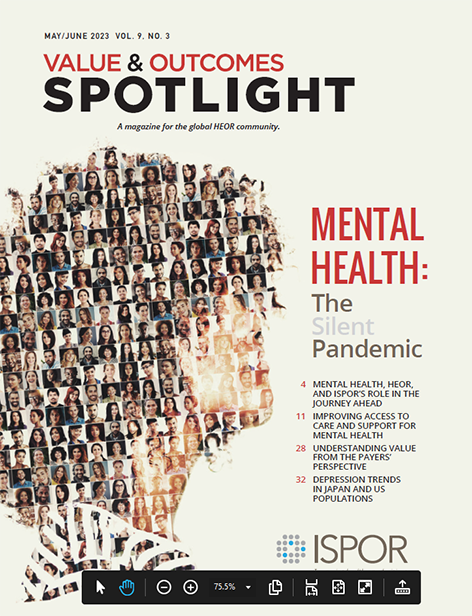Economic Evaluation of Family-Focused Programs When Parents Have a Mental Health Problem: Methodological Considerations
Section Editor: Agnes Benedict; Guest Section Editor: Victoria Molenkamp
Zechmeister-Koss I, Strohmaier C, Hölzle L, et al. Value Health. 2023;26(5):704-711.
Children of parents with mental health problems experience a number of challenges in the long- and short-term, leading to considerable costs for the individual and society. The number of children who are impacted by parents with mental health disorders are estimated to be up to 1 in 4 or 1 in 5 internationally.1,2 Not only is the individual child adversely affected but the impact also spreads to the broader society around them. Managing these adverse effects can be costly to individual families and the public healthcare and education sectors that seek to support them.
Interventions aimed at improving the health of children in such households are complex. The impacts can reach beyond the healthcare sector, affecting other public sectors including education, criminal justice, and welfare systems. Traditional outcome measures in economic evaluations may be ill-suited to capture these benefits. The authors of this paper sought to produce evidence-based guidance on which outcomes to include and which designs work best for economic evaluations in this field. By systematically searching the literature, they hoped to gain an understanding of the economic impact of adverse effects experienced by children of parents with mental health problems.
Based on the literature search, the authors created an impact inventory that comprehensively lists the long- and short-term adverse impacts on children ≥4 years of age who had parents with mental health problems. The adverse impacts were categorized across the following categories: (1) impact on children’s mental and physical health; (2) impact on children’s social functioning; and (3) impact at the socioeconomic level (Figure).

The authors hypothesized the interventions that would be required to counter the adverse effects across all categories, so from that, one could estimate the cost to the economy and society of addressing these impacts. It was clear that costs would be incurred by the children themselves during childhood and into adulthood, and that public sector expenses would also be considerable.
Given these significant estimated costs and long-term impacts, the authors propose that future economic evaluations should consider broad, cross-sector costs when evaluating and estimating the benefits of treatment related to parental mental health problems. Health and nonhealth costs and benefits should be considered, in particular.
Methodological guidance that the authors suggest includes:
(1) incorporating a societal perspective or multiple perspectives to accurately cover costs across multiple sectors; (2) investigating private costs incurred (eg, including the costs of any informal care role children may be fulfilling in their parents’ lives); and
(3) employing instruments to measure adverse effect outcomes that go beyond health-related quality of life and are tailored for use in children. In terms of design, they consider using a cost-consequence analysis could be better suited to complex interventions and capturing the long-term impacts but they acknowledge that this depends on data being available.
Although the COVID-19 pandemic highlighted the need to consider broader value elements, it is clear that several other therapy areas need to take into account the broader social implications in an economic evaluation. The impact inventory provides a well-structured framework that may be applicable to the assessment of other programs.
References:
1. Maybery D, Reupert AE. The number of parents who are patients attending adult psychiatric services. Curr Opin Psychiatry. 2018;31(4):
358–362.
2. Radicke A, Barkmann C, Adema B, Daubmann A, Wegscheider K, Wiegand Grefe S. Children of parents with a mental illness: predictors of health-related quality of life and determinants of child-parent agreement. Int J Environ Res Public Health. 2021;18(2):379.

